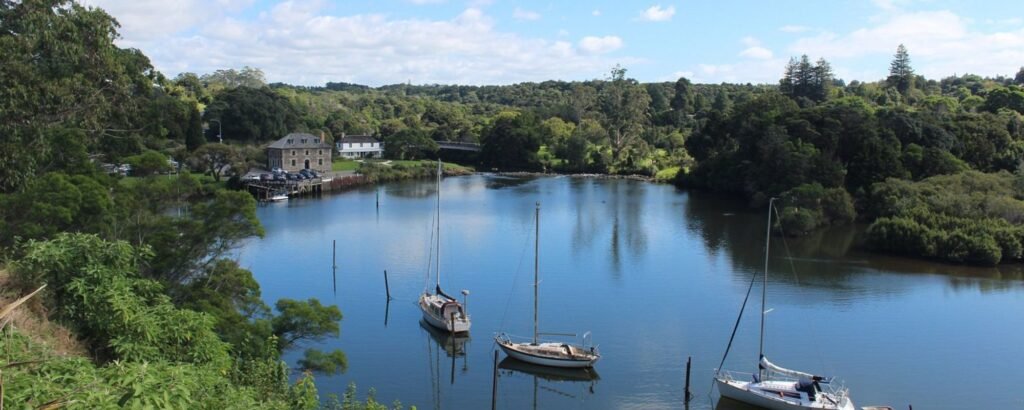
Known as the “fruit bowl of the North,” Kerikeri is a town that blends history, horticulture and creativity. It’s home to some of the oldest buildings in Aotearoa – New Zealand, thriving markets, lush gardens and a vibrant food and wine scene. For many travellers, Kerikeri is more than a stopover — it’s a destination in its own right.
Stone Store & Mission House
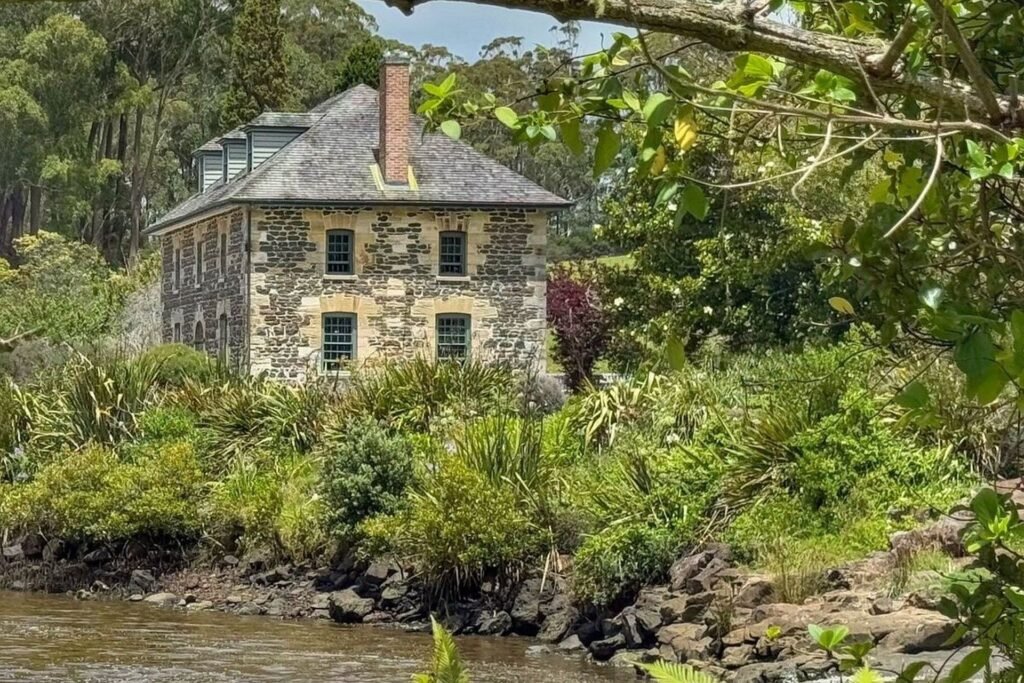
Step back into the early 1800s with a visit to the Stone Store and Mission House (Kemp House). These are the oldest surviving European buildings in the country, set beside the Kerikeri River in a peaceful heritage precinct. Wander through the historic gardens, cross the stone bridge and explore displays that bring colonial and missionary life to light. Guided tours offer a deeper dive into the stories of trade, faith and cultural encounters that shaped the region.
Rainbow Falls & River Walks
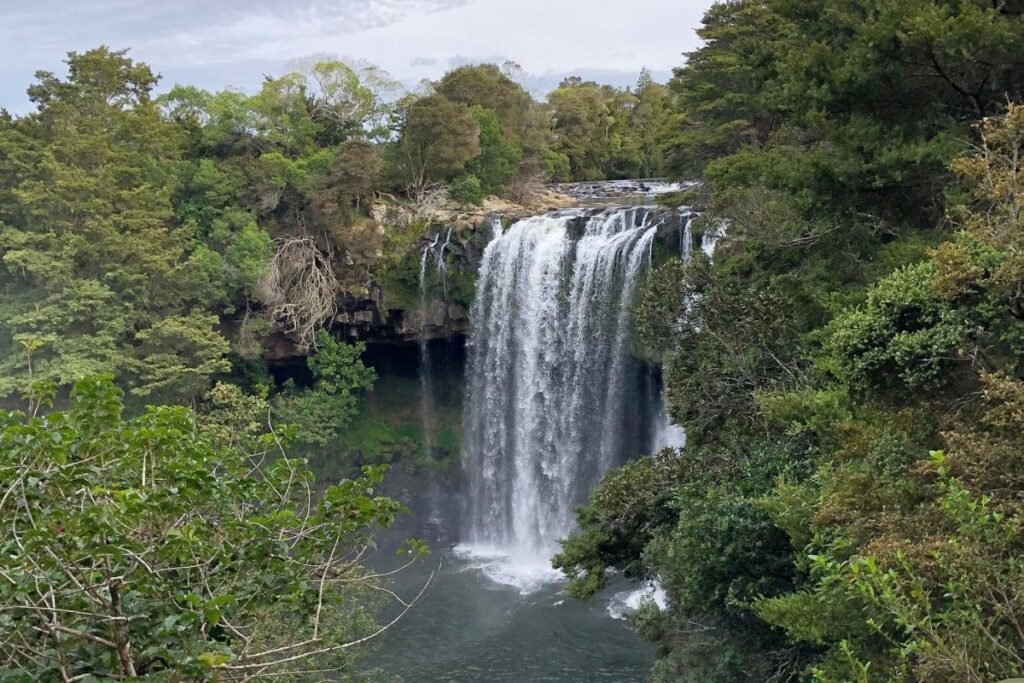
Just a short distance from town, the Rainbow Falls (Waianiwaniwa) cascade in a single 27-metre drop. An easy 5-minute walk from the carpark brings you to a viewing platform or you can follow the scenic Kerikeri River Track from the Stone Store all the way to the falls (about 1.5 hours one way). Along the way, you’ll pass forest, streams and smaller cascades, a tranquil slice of nature right on Kerikeri’s doorstep.
Food, Wine & Markets
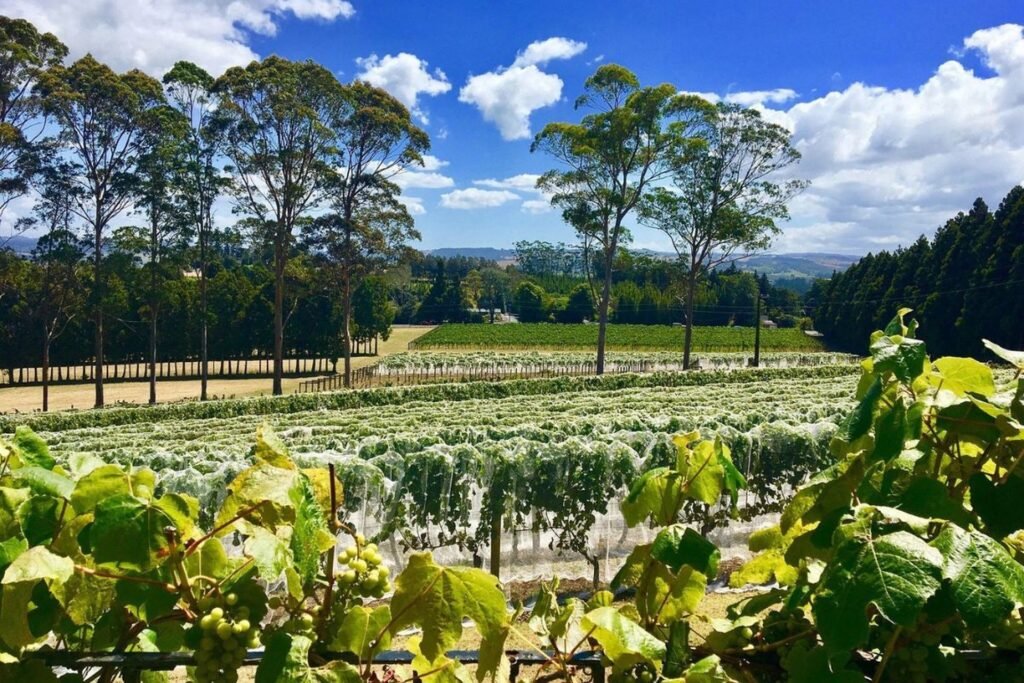
Kerikeri is renowned for its fresh produce and artisanal flavours. From orchards and vineyards to weekend markets, it’s a place where you can taste the region’s bounty. Popular stops include:
- 🍇 Wineries: Sample local vintages at boutique vineyards scattered around the valley.
- 🥝 Farmers’ Markets: The Saturday and Sunday markets are packed with seasonal fruit, veg, crafts and local treats.
- 🍫 Artisan Shops & Cafés: From chocolate makers to gourmet delis, Kerikeri’s food scene is all about quality and creativity.
Homegrown Flavours & Local Businesses
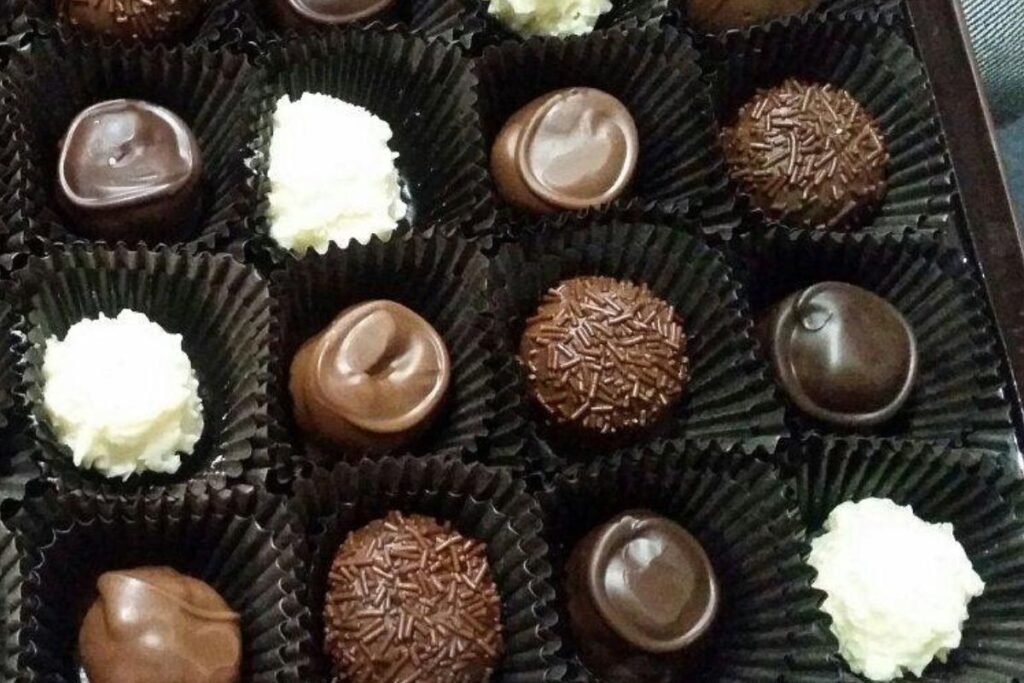
One of the things that makes Kerikeri special is the abundance of homegrown businesses that thrive here. From roadside stalls to boutique shops, you’ll find produce and products with a true local touch.
- 🌰 Macadamia nuts – grown on small orchards and sold roasted, coated or pressed into oils.
- 🍯 Honey – Northland’s climate is perfect for producing rich mānuka and multiflora honeys.
- 🍫 Chocolate & sweets – local chocolatiers and sweet-makers put their own spin on indulgent treats.
- 🌿 Natural skincare & oils – many products are handmade using local botanicals.
- 🥝 Fruit stalls – kiwifruit, citrus, avocados, and whatever is in season, often sold fresh from the grower.
Exploring these homegrown businesses isn’t just about shopping — it’s a way to connect with the community, support locals and take home a little piece of Northland flavour.
Surrounding Attractions
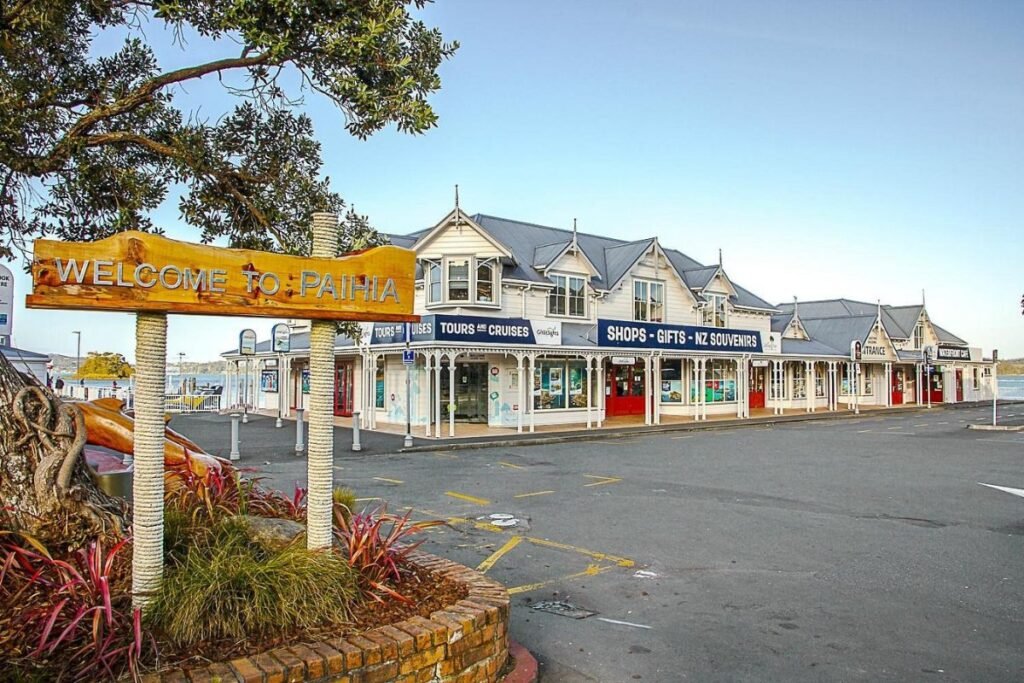
Kerikeri makes a great base for exploring the Bay of Islands and beyond:
- 🏝️ Bay of Islands: Just a 20-minute drive to Paihia and Russell for cruises, dolphin watching and water adventures.
- 👉 Find more experiences in our blog: [Pēwhairangi – Bay of Islands: A Visitor’s Guide]
- 🏞️ Puketi Forest: Nearby walking tracks showcase more kauri and native bush.
- 🎨 Local Art Galleries: Kerikeri has a thriving creative community with studios and galleries open to visitors.
Need to Know – Kerikeri
- 📍 Location: Inland from Paihia, about a 20-minute drive from the Bay of Islands coast
- ✈️ Getting there: Kerikeri has a regional airport with daily flights to and from Auckland, making it one of the easiest gateways into Northland
- 🚗 By road: Well connected to Paihia, Russell, and the wider Bay of Islands; a good base if you’re exploring further north toward Doubtless Bay or Cape Rēinga
- 🕒 Time to spend: Half a day for highlights, 1–2 days if you want to enjoy markets, wineries, gardens and walks at a relaxed pace
- 🛍️ Local character: Known for homegrown businesses, from macadamia orchards and honey producers to artisan chocolate and boutique shops
- 🚗 Parking: Free and plentiful in town with dedicated spaces at major attractions like the Stone Store and Rainbow Falls
🌍 Travel Planning Resources
These are the tools we personally use and trust when planning our travels from finding a place to stay to booking activities, transport and insurance. Let your Tohu guide you — Trust the Journey and follow what feels right for you.
- ✈️Flights – Compare great deals with Trip.com then Kiwi.com for flexible, affordable options.
- 🚐 Campervans – Compare rental deals with Motorhome Republic across Aotearoa and beyond.
- 🛏️ Stays – Compare hotels on Trip.com and TripAdvisor or Booking.com.
- 🚐 Rental Cars – Compare prices and book through Airport Rentals by Motorhome Republic for trusted brands and easy airport pickup.
- 🎟️ Activities – Browse tours and experiences on Viator, Get Your Guide, or TripAdvisor
- 🚆12Go Asia – Compare and book trains, buses, and ferries across Asia in one place with 12Go.
- 🛡️ Travel Insurance – Get flexible short-term coverage with Insubuy for your next holiday.
- 🔒 Protect Your Privacy with a VPN – We recommend Surfshark VPN for secure and private browsing while travelling. It’s fast, affordable and works worldwide — perfect for public Wi-Fi at airports, cafes and hotels.
- 📱 Travel eSIM – Stay connected with Airalo
- 💼 Lounge Access – Treat yourself with Priority Pass – for UK or US
- 🎶 Events & Concerts – Book tickets worldwide through Ticketmaster.
🧭 Note: Some booking links can be a bit shy when you’re using a VPN. If one doesn’t open, try pausing your VPN or switching to a different server location or secure Wi-Fi network to get things flowing again.
“Whatungarongaro te tangata, toitū te whenua.”
People pass on, but the land remains.